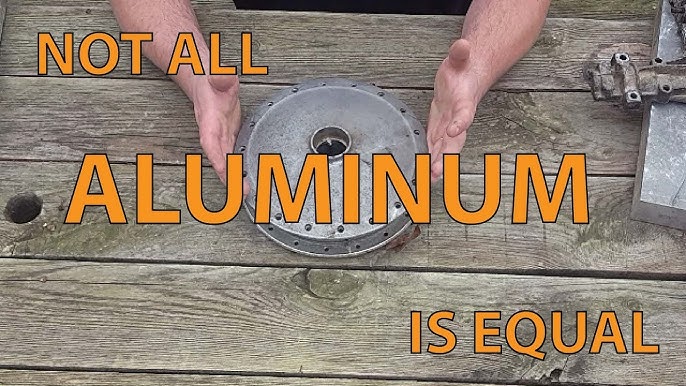All about Stahl Specialty Company
Wiki Article
The Buzz on Stahl Specialty Company
Table of ContentsStahl Specialty Company for BeginnersThe Best Strategy To Use For Stahl Specialty CompanyThe smart Trick of Stahl Specialty Company That Nobody is Talking AboutStahl Specialty Company Can Be Fun For EveryoneNot known Incorrect Statements About Stahl Specialty Company
Chemical Contrast of Cast Aluminum Alloys Silicon advertises castability by minimizing the alloy's melting temperature and enhancing fluidity throughout casting. Additionally, silicon contributes to the alloy's toughness and use resistance, making it valuable in applications where resilience is essential, such as automotive components and engine components.It additionally improves the machinability of the alloy, making it less complicated to refine right into finished products. In this method, iron contributes to the total workability of aluminum alloys. Copper boosts electrical conductivity, making it useful in electrical applications. It also enhances rust resistance and adds to the alloy's general strength.
Manganese contributes to the toughness of light weight aluminum alloys and improves workability. It is typically used in wrought light weight aluminum items like sheets, extrusions, and accounts. The existence of manganese help in the alloy's formability and resistance to breaking during construction processes. Magnesium is a lightweight element that offers toughness and impact resistance to aluminum alloys.
It permits the manufacturing of lightweight parts with outstanding mechanical residential or commercial properties. Zinc enhances the castability of aluminum alloys and helps control the solidification process during spreading. It boosts the alloy's toughness and solidity. It is frequently located in applications where elaborate forms and great information are needed, such as decorative castings and particular vehicle components.
The Greatest Guide To Stahl Specialty Company
Since aluminum-silicon alloys have good spreading residential or commercial properties, high gas homes, simple procedures, and outstanding corrosion resistance, aluminum-silicon alloys are most commonly made use of in the die-casting industry in the house and abroad. At the same time, aluminum-silicon alloys are also fairly very early and widely recognized alloys developed and utilized in die-casting. After continual research and improvement, most of the present international mainstream aluminum-silicon alloys have been completed and are absolutely nothing greater than A356, A360, A380, ADC12, B390, and A413.
The primary thermal conductivity, tensile toughness, yield toughness, and elongation differ. Select appropriate basic materials according to the efficiency of the target item produced. Among the above alloys, A356 has the highest possible thermal conductivity, and A380 and ADC12 have the lowest. The tensile limitation is the contrary. A360 has the ideal return stamina and the highest possible elongation rate.

What Does Stahl Specialty Company Mean?
In precision spreading, 6063 is fit for applications where complex geometries and top notch surface finishes are vital. Instances consist of telecommunication enclosures, where the alloy's remarkable formability allows for sleek and visually pleasing layouts while preserving structural integrity. In the Illumination Solutions sector, precision-cast 6063 components develop classy and effective lighting fixtures that need detailed forms and excellent thermal performance.
(https://www.quora.com/profile/Stahlspecialc)
It results in a finer surface coating and far better deterioration resistance in A360. Furthermore, the A360 exhibits premium prolongation, making it suitable for complex and thin-walled parts. In accuracy casting applications, A360 is fit for industries such as Customer Electronics, Telecommunication, and Power Tools. aluminum foundry. Its boosted fluidity permits intricate, high-precision parts like smartphone coverings and interaction gadget housings.

In accuracy casting, light weight aluminum 413 shines in the Customer Electronic Devices and Power Devices sectors. This alloy's premium deterioration resistance makes it an excellent selection for outside applications, ensuring long-lasting, resilient items in the mentioned sectors.
Facts About Stahl Specialty Company Uncovered
The light weight aluminum alloy you pick will considerably influence both the spreading procedure and the residential properties of the last product. Due to the fact that of this, you must make your decision meticulously and take an informed method.Figuring out the most suitable aluminum alloy for your application will indicate evaluating a wide selection of features. These relative alloy characteristics follow the North American Die Casting Organization's standards, and we've divided them right into two classifications. Foundry. The initial group addresses alloy characteristics use this link that impact the manufacturing process. The 2nd covers qualities impacting the homes of the final product.
The alloy you pick for die spreading straight influences a number of elements of the spreading process, like exactly how simple the alloy is to function with and if it is prone to casting flaws. Hot cracking, also referred to as solidification cracking, is a normal die casting flaw for light weight aluminum alloys that can result in interior or surface-level tears or splits.
Getting The Stahl Specialty Company To Work
Specific light weight aluminum alloys are more at risk to warm cracking than others, and your option must consider this. An additional typical flaw located in the die casting of aluminum is pass away soldering, which is when the cast adheres to the die walls and makes ejection challenging. It can harm both the cast and the die, so you should search for alloys with high anti-soldering homes.Rust resistance, which is already a noteworthy quality of light weight aluminum, can vary considerably from alloy to alloy and is a vital characteristic to take into consideration depending upon the environmental problems your product will certainly be subjected to. Use resistance is another home frequently sought in aluminum items and can separate some alloys.
Report this wiki page